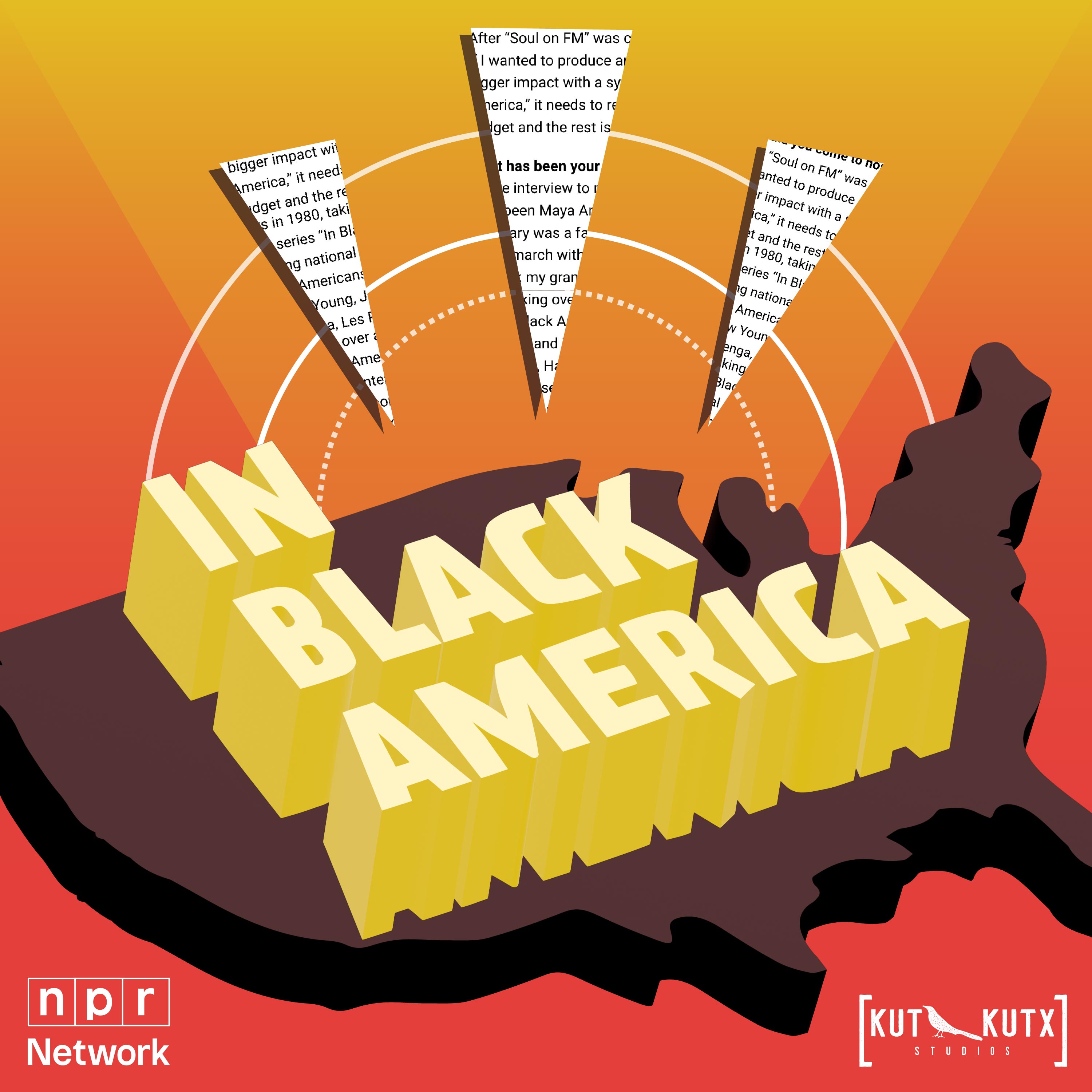

In Black America
KUT & KUTX Studios, John L. Hanson
IBA profiles a diverse selection of current and historically significant figures whose stories help illuminate life in Black America.
Episodes
Mentioned books

Dec 7, 2020 • 30min
Ron Simons, pt. 1 (Ep. 1, 2021)
This week on In Black America, producer and host John L. Hanson, Jr. begins a conversation with Ron Simons, Tony Award-winning Broadway producer and President and CEO of SimonSays Entertainment, about his experience as a pioneer in the effort to bring diversity to the stage, telling stories about African American history and culture.
The post Ron Simons, pt. 1 (Ep. 1, 2021) appeared first on KUT & KUTX Studios -- Podcasts.

Nov 29, 2020 • 30min
Maurice A. Jones (Ep. 52, 2020)
This week on In Black America, producer and host John L. Hanson speaks with Maurice A. Jones, former Deputy Undersecretary of HUD and former Virginia Secretary of Commerce and current President and CEO of the Local Initiatives Support Corporation, a community development finance corporation providing a variety of financial and technical services to schools, healthcare centers and organized groups.
The post Maurice A. Jones (Ep. 52, 2020) appeared first on KUT & KUTX Studios -- Podcasts.

Nov 22, 2020 • 30min
Tim Todd (Ep. 51, 2020)
This week on In Black America, producer and host John L. Hanson, Jr. discusses the history of African American-owned financial institutions with Tim Todd, Executive Writer and Historian with the Federal Reserve Bank of Kansas City, and author of Let Us Put Our Money Together: The Founding Of America’s First Black Banks.
The post Tim Todd (Ep. 51, 2020) appeared first on KUT & KUTX Studios -- Podcasts.

Nov 16, 2020 • 30min
Kirk Brown (Ep. 50, 2020)
This week on In Black America, producer and host John L. Hanson Jr. speaks with Kirk Brown, founder of Melanin Meetups, a national think platform where young African American professionals come together to develop data-driven solutions to address social, economic and professional challenges facing the African American community.
The post Kirk Brown (Ep. 50, 2020) appeared first on KUT & KUTX Studios -- Podcasts.

Nov 9, 2020 • 29min
Alexandra Warnier (Ep. 49, 2020)
This week on In Black America, producer and host John L. Hanson speaks with Alexandra Warnier, Manager of Corporate Social Responsibility for American Honda, about the COVID-19-related challenges of managing the Honda Campus All-Star Challenge, an academic competition that celebrates NBCU academic achievement.
The post Alexandra Warnier (Ep. 49, 2020) appeared first on KUT & KUTX Studios -- Podcasts.

Nov 1, 2020 • 30min
Pastor Miles McPherson (Ep. 48, 2020)
This week on In Black America, producer and host John L. Hanson, Jr. speaks with Pastor Miles McPherson, former San Diego Chargers football player, author, motivational speaker, and pastor of The Rock Church in San Diego, California.
The post Pastor Miles McPherson (Ep. 48, 2020) appeared first on KUT & KUTX Studios -- Podcasts.

Oct 25, 2020 • 29min
Haile Thomas (Ep. 47, 2020)
This week on In Black America, producer and host John L. Hanson, Jr. speaks with Haile Thomas, an international speaker, wellness and compassion activist, content creator and author of Living Lively. Ms. Thomas is a graduate of the Institute for Integrative Nutrition and founder/CEO of the non-profit HAPPY.
The post Haile Thomas (Ep. 47, 2020) appeared first on KUT & KUTX Studios -- Podcasts.

Oct 18, 2020 • 30min
Dr. E. James West (Ep 46, 2020)
On this week’s In Black America, producer and host John L. Hanson, Jr. discusses Ebony magazine’s political, social and historical influence and importance with Dr. E. James West, author of Ebony Magazine And Lerone Bennett, Jr.: Popular Black History In Postwar America.
The post Dr. E. James West (Ep 46, 2020) appeared first on KUT & KUTX Studios -- Podcasts.

Oct 11, 2020 • 30min
Shaundell Newsome (Ep. 45, 2020)
On this week’s edition of In Black America, producer and host John L. Hanson, Jr. speaks with Shaundelle Robinson, United States Air Force and Operation Desert Storm veteran, and the founder and visionary behind Sumnu Marketing, a two-time Small Business Association Award winner.
The post Shaundell Newsome (Ep. 45, 2020) appeared first on KUT & KUTX Studios -- Podcasts.

Oct 5, 2020 • 29min
John Lewis, pt. 2 (Ep. 44, 2020)
This week on In Black America, producer and host John L. Hanson, Jr. concludes a tribute to the Congressman and Civil Rights leader, John Robert Lewis, who represented Georgia’s 5th Congressional District from 1987 until his death on July 17, 2020. The interview was recorded during Congressman Lewis’s visit to the University of Texas at Austin in the Spring of 2020.
The post John Lewis, pt. 2 (Ep. 44, 2020) appeared first on KUT & KUTX Studios -- Podcasts.


